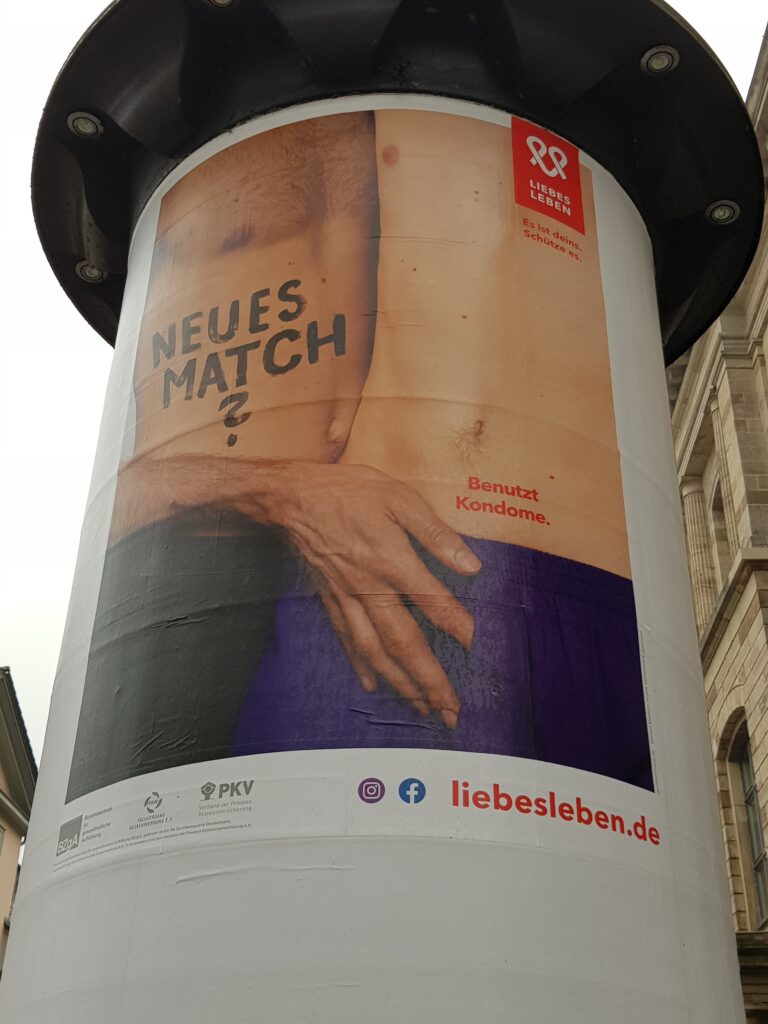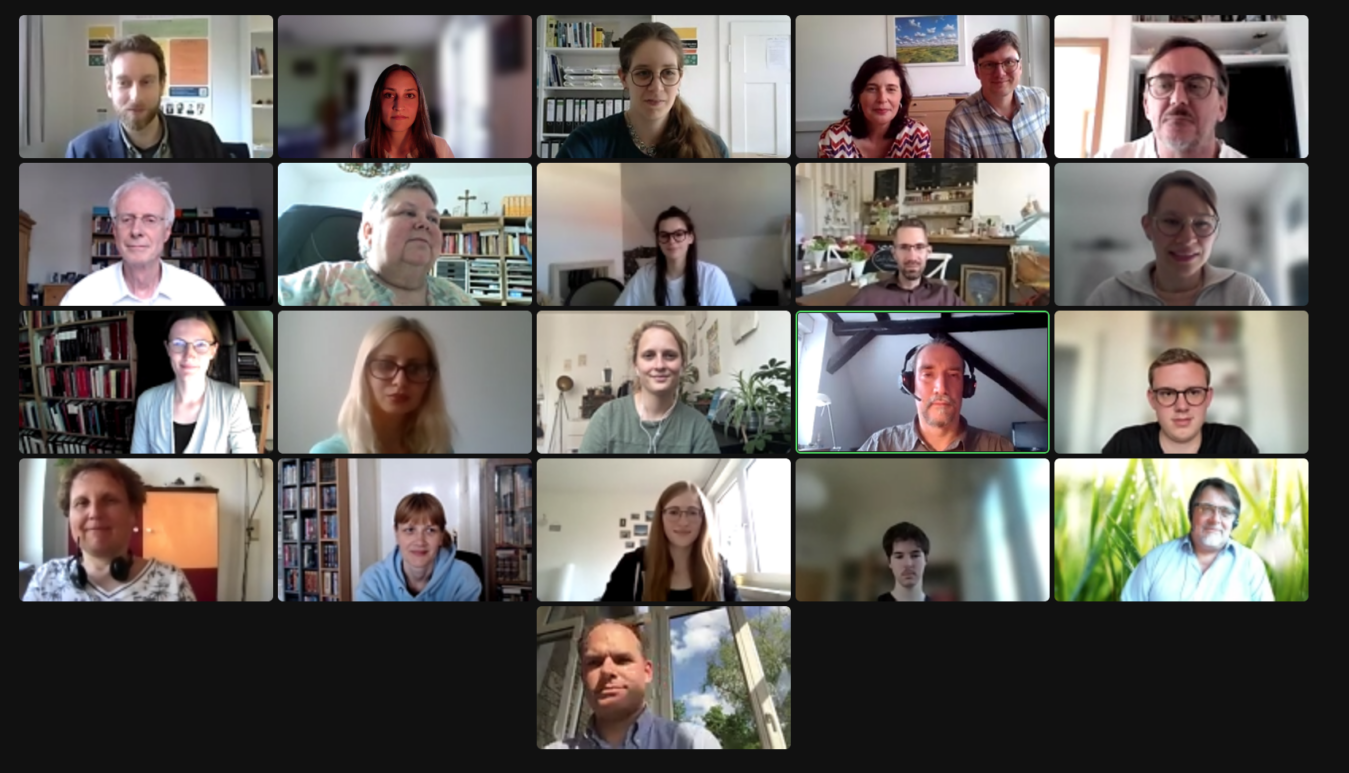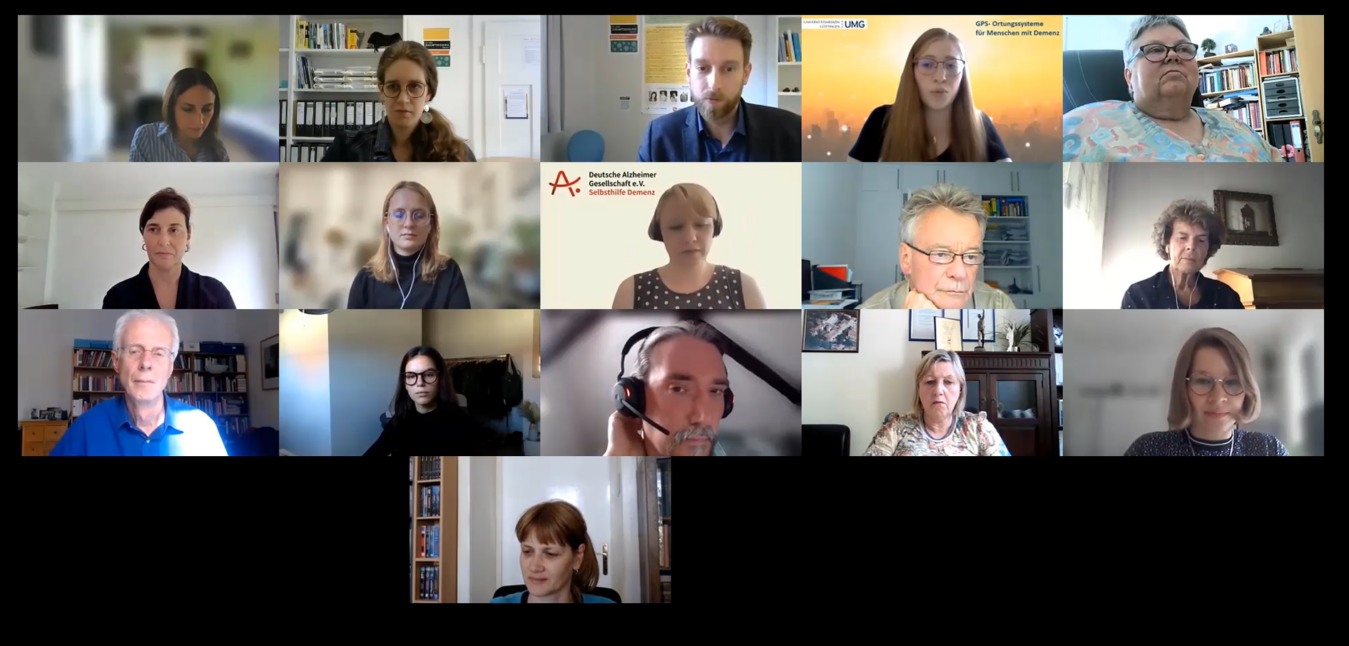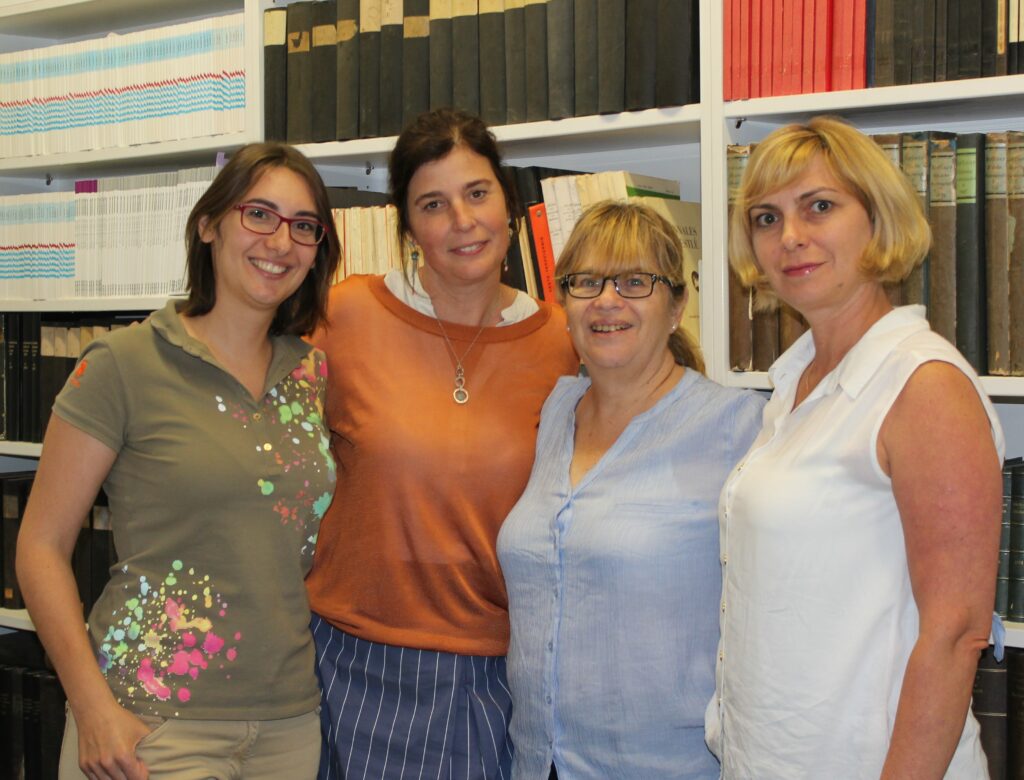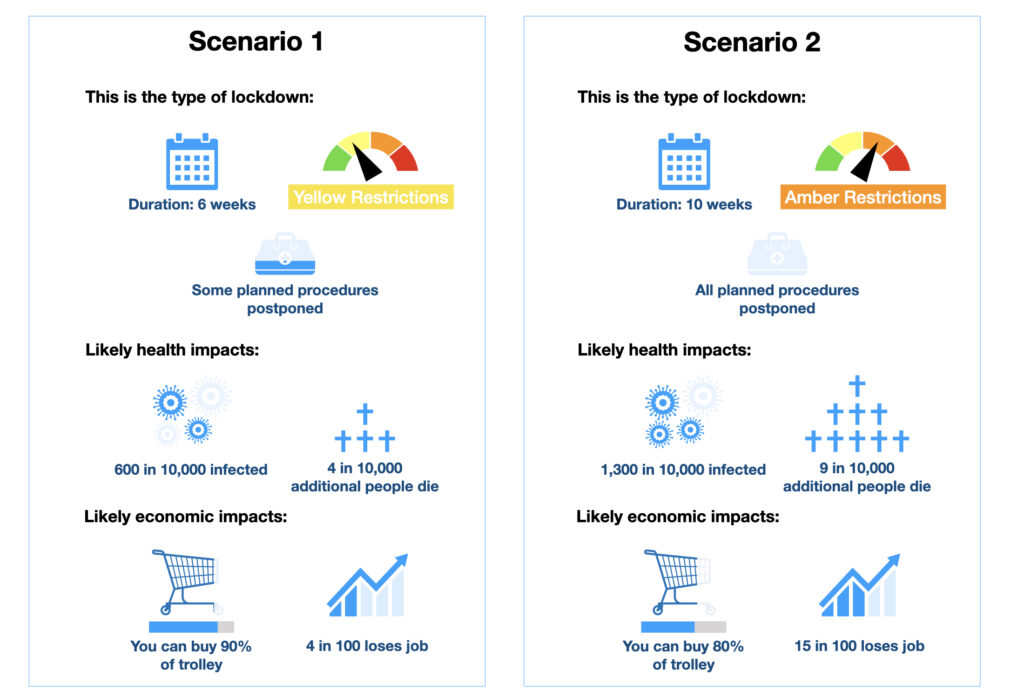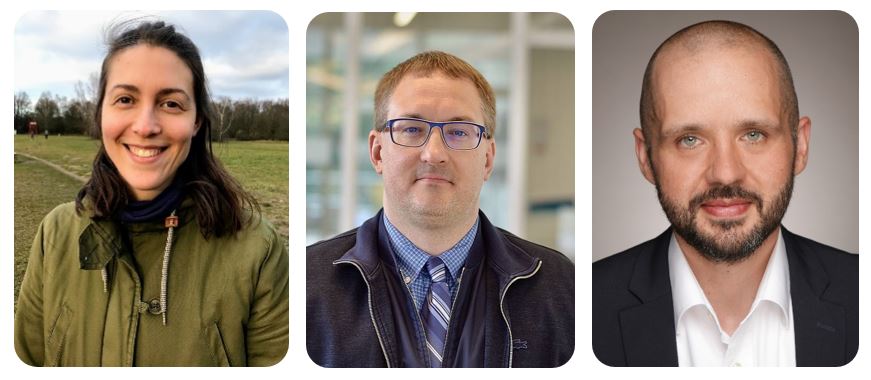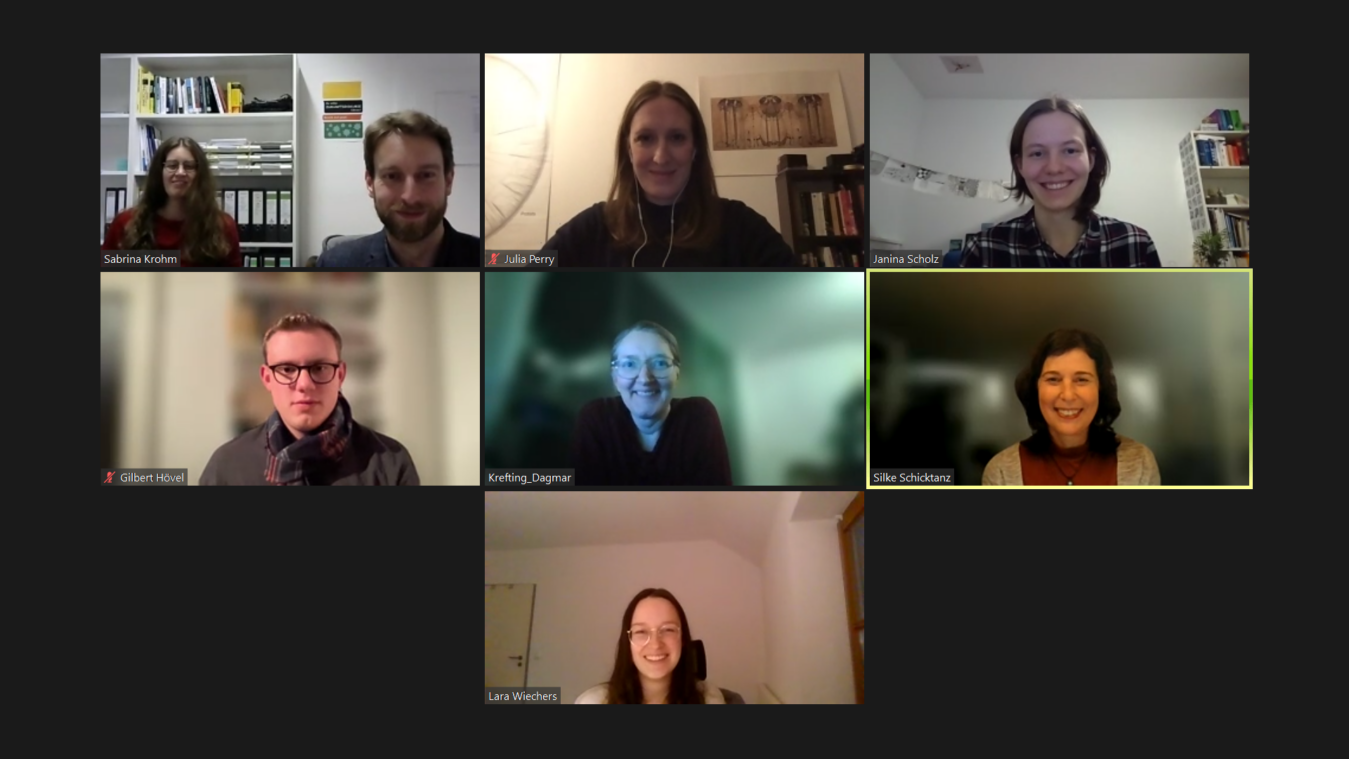Wir freuen uns sehr, den folgenden Gastbeitrag von Herrn Professor Peter Omonzejele in englischer Sprache veröffentlichen zu dürfen.
Abstract
Against the backdrop of vaccine hesitancy and refusal (VHR) for the oral polio vaccine (OPV) in northern Nigeria some years back, the reasons and consequences of VHR for the OPV are discussed in this essay. Previous academic discussions had been undertaken among others, from sociological, psychological, anthropological and epidemiological perspectives to investigate the reasons for VHR in northern Nigeria. This essay introduces a new layer to the discussion, which is the bioethical interrogation of VHR for the OPV in northern Nigeria. This essay employs the tool of community engagements to tackle VHR for the OPV from an ethical and ontological understanding of African communities. Based on those foundational understanding of community, it can be shown why parents will be better persuaded to provide proxy consents on behalf of their infants that satisfies the reasonable man criterion. Nevertheless, community engagement is not necessarily meant to replace parental decisional authority over their infants, except where it is absolutely necessary to do so and in the best interests of the infant.

Introduction
Vaccines play an important role in public health promotion. They reduce the burden of diseases by preventing infection and considerably reduce the health impact on individuals when a disease is contracted. Vaccines have proven to be helpful in reducing infant mortality as vaccination is among the ‘safest public health interventions preventing 2 to 3 child deaths each year’.1 In Nigeria, infants should receive the following routine vaccinations before the completion of their second life year: hepatitis, tuberculosis, diphtheria, pertussis (whooping cough), tetanus, measles and poliomyelitis. However, there have been situations of vaccine hesitancy and refusal (VHR) in some countries for vaccinations. Vaccine hesitancy and refusal is ‘a delay in acceptance or refusal of vaccines despite availability of vaccination services’.2 It is important to note that ‘vaccine hesitancy may be specific to one or some but not all vaccines.3 That was the case when there was hesitancy, refusal, boycott and an outright ban of the Oral Polio Vaccine (OPV) in northern Nigeria while vaccinations for other conditions indicated above were accepted. VHR for the OPV demands attention because the vaccine has proven effective at preventing poliomyelitis, a preventable life-threatening disease which causes paralysis. In the following, some of the reasons for VHR for poliomyelitis in northern Nigeria will be discussed.
Some reasons for vaccine hesitancy and refusal of the oral polio vaccine
Reasons for VHR differ from country to country as contexts and circumstances are not the same. Sometimes, the reasons for VHR might even differ from region to region within the same country. Some of the reasons advanced for VHR in northern Nigeria are as follows.
- According to Sato and Yakasaki, political leaders in northern Nigeria openly challenged the safety of OPV. In three northern states, ‘polio immunization campaigns were boycotted due to a suspicion about the safety of the vaccine especially for the girl child’.4
- According to Jegede, VHR in northern Nigeria has a historical explanation. Northern Nigeria never accepted orthodox medicine in the way southern Nigeria did. Based on statistics provided by the Federal Office of Statistics of Nigeria (1990) and the National Population Commission of Nigeria (2007), Jegede points out an imbalance of acceptance and use of orthodox healthcare between southern and northern Nigeria which he documents as, ‘the comparative utilization rates of southern Nigeria and versus northern Nigeria were 50% versus 18% in 1990…60% versus 11% in 1999, and 64% versus 8% in 2003’. Since the OPV is from the West and considered orthodox healthcare, it was easy for many people in northern Nigeria to buy into the rumoured negative effect of taking the OPV.5
- Jegede further argues that the political administrative structure in Nigeria also enabled VHR in northern Nigeria as primary and secondary level healthcare are under state governments, while tertiary level healthcare is under the federal control. Primary level care is designed to provide basic and essential medical care for people in their communities, while secondary level care are general hospitals and they are deployed to cover local governments. Tertiary health institutions are managed by the federal government with the mandate to train healthcare personnel. Vaccinations, such as OPV are primary healthcare interventions in Nigeria.6 Hence, ‘the Kano state government was able to issue a directive to halt the immunization exercise planned by the federal government’.7 Besides Kano state, some other state governments in northern Nigeria also officially banned OPV in their jurisdictions.
- Jegede further points to the Trovan trial of 1999 by Pfizer, which also created VHR for the OPV in northern Nigeria.8 Let me shed some light on the modified Pediatrics Aids Clinical Trial Group 076 (modified PACTG 076) which I had previously discussed in some detail in another outlet.9 In 1996, Pfizer a big multinational pharmaceutical company conducted a meningitis study in Kano, Nigeria. According to Stephens, Pfizer tested trovafloxacin (trade name Trovan), an antibiotic, ‘amid a terrible epidemic in a squalid, short-staffed medical camp lacking basic diagnostic equipment’.10 Macklin notes that said trial resulted in the death of eleven children, while 200 became deaf, blind or lame as a result of the trial.11 Macklin highlights the features of the trial which resulted in significant harm. Children were given Trovan orally while children in the United States were given the drug intravenously.12 The oral administration of this drug had not been tried before in children. The trial was not conducted in line with established guidelines for meningitis trials, which state that ‘a follow-up spinal tap’ should be conducted a couple of days after the administration of the drug to monitor progress of research subjects; this was omitted in the Nigerian study. Stephens also added that the required second blood test which was supposed to be carried out on the children was not done as there was a shortage of staff.13 A crucial question in the Kano trial is whether proper consent was given by the research subjects or by their parents. It seems not. Pfizer could not provide signed informed consent forms when the case was publicized. Macklin comments on this omission as follows: “An undisputed criterion for determining that research is in fact exploitative is failure to provide the information necessary for properly obtained consent: telling potential subjects that they are being invited to participate in research, lack of an adequate explanation of the risks, potential benefits, procedures to be performed and alternative treatments, and failure to ensure that the potential subjects understand what they have been told and agree voluntarily to participate. To the extent that these elements were lacking in the Nigerian study, it counts as a case of exploitation”.14 It is very likely that the children’s parents/guardians may not have been aware of the risks involved in the trial (that is, if they were even aware that their wards were involved in a study in the first place), since Kano is located in northern Nigeria where illiteracy levels are very high. It seems Pfizer took advantage of the circumstances of those research subjects and their parents (illiteracy and poverty) to undertake their trials. Hence, it was understandable when people in northern Nigeria are weary and skeptical of another oral vaccine-OPV.
- A study was undertaken on polio risk perception and understanding of polio among rural households in northern Nigeria in 2014.15 In that study, respondents had different perceptions of the threat of polio to the children and community, however, ‘malaria was identified by most respondents (85%) as one of the most significant health problems in their community, polio was not perceived as a priority health concern’.16 In addition, other reasons proffered by the respondents for VHR for polio are: the belief that VHR for polio ‘is unnecessary as polio infection was an act of God (49%) and ‘the perception that the vaccine was not helpful (40%)’. These perceptions promoted VHR and consequences for unvaccinated infants and for the community.
The consequences of VHR for polio could result in paralysis and other life threatening conditions for unvaccinated infants. Furthermore, VHR for polio in northern Nigeria has consequences for budgetary health allocation, as it is usually cheaper to prevent polio (as with any other medical condition) than to treat the complications resulting from poliomyelitis. This consequence of VHR is particularly germane as poverty is a serious issue in sub-Saharan Africa, and Nigeria is not immune from it. In general, ‘vaccination is recognized as a cost-effective public health measure for decreasing childhood mortality and morbidity’.17 Also, another serious consequence of VHR in northern Nigeria is that it could result in polio out-breaks and potentially affects regional health in Western Africa, especially in the Sahel region. This is because ‘continued outbreaks of vaccine-preventable diseases threaten the health of local communities as well as the global community’.18 Another potential consequence of VHR in northern Nigeria is that ‘vaccine hesitancy may spill over to affect the uptake of other vaccines’.19 Several studies of VHR in northern Nigeria have been undertaken from statistical, epidemiological sociological, public health, anthropological, and psychological perspectives. However, comparatively few studies (if any) have been undertaken for VHR from a bioethical perspective. It is this gap that I aim to address here.
Informed consent, parental decisional authority and the infant’s best interests
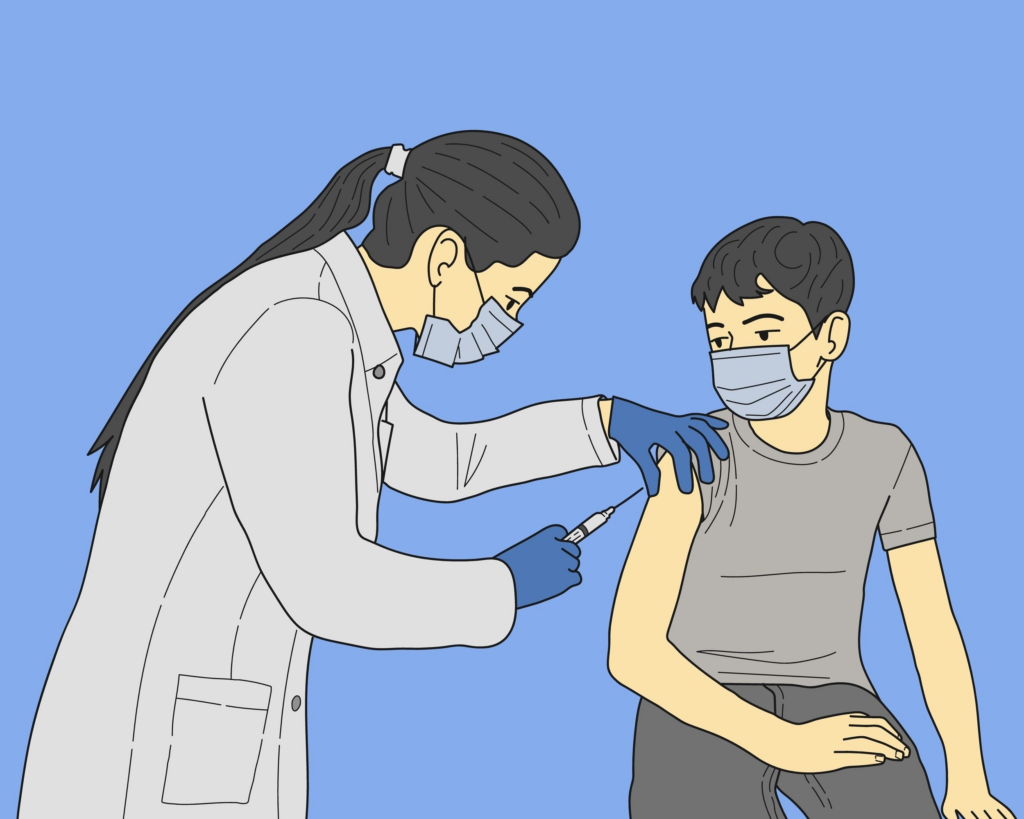
Informed consent is a philosophical idea based on the principle of autonomy.20 Within the healthcare context, informed consent is: ‘the knowledgeable and voluntary agreement by a patient to undergo an intervention by a health-care professional, one that is in accord with the patient’s values and preferences”.21 The term ‘informed’ or ‘knowledgeable agreement’ refers to the explanatory side of the purposes of a medical intervention, in particular, its benefits and foreseeable risks as well as alternatives. This explanation has to be given in a way that is understandable for the patient.22 The term ‘consent’ refers to the setting of obtaining agreement, which has to be non-coercive and usually involves some form of documentation. In addition, informed consent usually involves mechanisms to obtain proxy consent.23 According to Andanda, the moral foundation of informed consent is the moral principle of respect for autonomy. She explains that the requirement for autonomy has two aspects, which are:
“…firstly, the requirement that those who are capable of deliberating on their personal choices should be treated with respect for their capacity for self determination; and secondly, persons with diminished or impaired autonomy, or those who are in dependent or in vulnerable positions, should be protected against harm and abuse”.24
This means that informed consent poses special problems for infants because of their diminished mental faculties. It then follows that since infants are incapable of making autonomous decisions, they must be considered and treated as vulnerable persons.
Loosely put, the concept of vulnerability depicts a relative or absolute situation of weakness brought about by the incapacity to protect one’s own interests. Omonzejele makes a distinction between contextual and intrinsic forms of vulnerability.25 Contextual forms of vulnerability refer to situations where the inability to protect one’s own interests emanates from social, cultural, political, or economic circumstances. In this case, the cause of vulnerability is extraneous. For instance, the lack of choices for access to essential medicines in rural Nigeria, Sierra Leone, Ghana, Rwanda, Kenya, etc. is a social, political, and economic circumstance affecting citizens in those countries, rather than vulnerability related to specific people. If some of the affected citizens were to receive political asylum in Germany, their access to essential medicines would be guaranteed. An intrinsic form of vulnerability, on the other hand, occurs when the nature of vulnerability is embedded in the individual, such as the case of infants. Infants are considered intrinsically vulnerable persons because of their diminished autonomy due to their infancy as they cannot sensibly access risks and benefits in important matters as it pertains to them. One of those matters is their willingness to give or withhold consent from vaccination against the polio virus disease. This is why parents usually exercise decisional authority on matters of vaccinations (as in many other matters), such as in the case OPV, on behalf of their infants through the instrument of proxy consent.
Proxy consent is when someone decides on somebody else’s behalf in the healthcare setting. This means that proxy consent is normally obtained when patients cannot decide for themselves whether they want a particular line of treatment. Whatever the reason for the incompetence of the patient, proxy decision makers need to be those who regard the interests of such incompetent patients as paramount. Hence, most proxy decision-makers are family members or those who know such incompetent individuals well enough to know what the person would have wanted had he or she been able to make the decision for him or herself. This is where parents derive their authority to decide for their children on matters of vaccinations- presumably in the infant’s best interests.
Parental decisional authority is usually respected because it is most unlikely that parents will take decisions that are inimical to their children. Other things allowing, most parents take decisions that will promote their own interests as well as that of their children, hence, they are given the liberty to make such decisions. In furtherance of this, ‘liberal democracies rightly value individual liberty. As a result, competent adults are usually considered to be the appropriate persons to make decisions about their own healthcare treatment. This freedom is usually extended to parents in relation to decisions about their children’s health’.26 Another reason parents also make decisions for their infants is derived from the decision to have a child where alternatives such as abortion are available, because it implies that parents have explicitly decided to take responsibility for the well-being of the expected child. This involves making reasonable and responsible decisions in the infant’s best interests which should in general culminate in the overall well-being of the infant.
What should be done when parental decisional capacity appears not to uphold the best interests of an infant? The question is important because sometimes parents can inadvertently make decisions that are not in their infant’s best interests. The response is: despite the fact that most people will reasonably defend parental decisional authority, this does not imply that parents’ decisional authority is limitless. At this point, proxy consent provided by the parents might now be transferred to institutional consent providers in the infant’s best interests. Institutional consent is where a health facility decides on what is best for an incompetent patient, and in this case, that an infant be given the OPV and indeed all routine infant vaccinations and this decision should prevail over a proxy consent derived from parental decisional authority. Hence, proxy consent derived from parental decisional authority which exposes an infant to potential harm ought to be ignored and vacated.
Sequel to the above paragraph and in the short term, there should be a modus operandi that compels parents to bring their infants in for mandatory routine vaccinations, including the OPV relying on the instrument of institutional consent. I am aware that the use of institutional consent might increase the number of vaccinated infants against polio in the short term, but I am also aware that it will not be enduring and far reaching enough because many births in Nigeria in general and in northern Nigeria in particular do not take place in formal health facilities. For instance, according to the 2018 Nigeria Demographic and Health Survey, ‘61% per cent of live births do not take place in a healthy facility’.27 This means authorities cannot keep tabs on the number of infants birthed within a certain period that ought to receive the OPV. A long-term solution to VHR for the OPV in northern Nigeria is the use of community engagement.
Community engagement in pursuance of the oral polio vaccine in northern Nigeria
Community interventions have been suggested by some investigators on how to resolve VHR for the OPV in northern Nigeria,28 etc. As far as I know, none of those previous investigators have discussed in detail the moral foundation of African communities and the link between the individual and the community on the basis of which the individual tends to trust the community more than governments, and this includes communities in northern Nigeria. This is because values in African communities are based on communitarian ethics and on an ontological connection with the community. Although the entire African continent cannot be said to have an identical cultural ethics, many ethical themes and values are similar ‘in their essentials, as African cultures, metaphysics, attitudes are at least very similar’.29
Communitarian ethics projects the values of the community where norms are determined by the traditions, religions, and culture of the community. In most parts of Africa, moral precepts are defined and founded on communal values. Hence, Africans have the saying that ‘one can only dance well when one dances in line with the drum beat of the community’. This means that what is considered good or bad is what the community considers as such. Furthermore, it implies that the realisation and actualisation of the self is expected to be through and within the community and not outside of the community. The community within the African context is the placenta through which the individual derives his or her sustenance and being, although, the community is meaningless without the individual it nourishes.30 This means that the community and the individual complement each other with the community remaining the senior partner in the interaction.31 When the term community is used from an African perspective, it refers to the communal spirit inherent in African communities. Such a community serves as the bedrock for members to lean on. It has the ability to address or resolve issues in practical terms for her members, and therefore has relevance for peoples’ day to day living which could be in the areas of commerce, education, healthcare, etc.
Individuals perceive themselves as an extension of the community, and individual decisions and possible consent to participate in vaccination, such as the OPV, and indeed in most other things, will almost directly or indirectly have community in-put. This is because the African principle of community-individuality32 which depicts the relationship that exists between the community and the individual is inter-woven. Hence, over-emphasizing individual consent to a medical procedure might prove to be counter-productive. This is because the human person is understood as a being in communion with others and not as an individual entity. For instance, it would be impossible to define the human person in the African context in isolation of that person’s relationship with his kindred and community. A person’s life is intertwined with that of his community. This makes it impossible for one to be overtly and completely autonomous. Iroegbu defines this sort of existence as that of ‘being-with’33 and he also used the phrase community-individuality to explain the relationship that exist between the community and the individual in the African context,34 and this does not exclude communities in northern Nigeria.
From the above understanding of the nexus between the individual and the community, it means that the role of community leaders in addressing VHR for the OPV in northern Nigeria cannot be over-emphasized. This is because ‘in northern Nigeria, community leaders – often referred to as traditional rulers – wield great power’.35 Jegede captures the far-reaching powers of traditional rulers as: ‘In the Hausa community of northern Nigeria, traditional rulers have powers derived from both culture and religion. This gives them the opportunity to perform both political and religious roles’.36 Adamu was also quick to state that it is important to devise strategies to sustain the interest of community leaders even after they have bought into a programme. This could be achieved by ‘presenting them with evidence-based situational analysis, as well as outlining the socio-economic implications of these problems to their communities’.37 This is surely a pathway to eliminating VHR and for the acceptance of the OPV and other childhood vaccinations in northern Nigeria.
The ultimate aim of community engagement in promoting infants vaccination againstpoliomyelitis in northern Nigeria is to help parents in that region appreciate the benefits of OPV for their infants and equip them to make the right decision in regards to the OPV for the benefit of their infants especially because damage caused by poliomyelitis are usually irreparable. After all, most parents want the best for their infants.
Conclusion
This essay is summarized on the note that if the community is well-managed and carried along and their suspicions alleviated, then the community might be more willing to actively support the OPV programme and the process of getting their infants vaccinated against poliomyelitis. In fact, because of the influence the community has over an individual in most African countries (and northern Nigeria is no exception), anyone who refuses to bring his or her child for the OPV will be declared contra bonos mores, and no one in most African communities would want such a declaration on him or her with its full implications. One such implication is to ostracize an offending member of a community from the social engagements of that community. The nature and circumstance of an anti-community offence will determine the nature of the sanction given to an offending member (or members) of a given community.
Wir danken Peter Omonzejele für diesen Beitrag.
References
- World Health Organization. “Global vaccine action plan, 2011-2020.” Geneva: World Health Organization, 2013.
- McIntosh, EDG; Janda, J; Ehrich, JHH; Pettoello-Mantovani, M and Somekh, E. “Vaccine hesitancy and refusal.” European Paediatric Association. Vol. 175, (2016.): p. 248-249.
- Ibid.,
- Sato, R and Takasaki, Y. “Vaccine Hesitancy and Refusal: Behavioral Evidence from Rural Northern Nigeria.” Vaccines, Vol. 9, (2021): p.1023.
- Jegede, AS. “What led to the Nigerian boycott of the polio vaccination campaign?” PLoS Medicine. Vol. 4. No 3. (2007): p
- Ibid.,
- Ibid.,
- Ibid.,
- Omonzejele, P. F. The Ethics of Medical Research in Africa, Saarbrucken: LAP Lambert Academic Publishing, 2012.
- Stephens, J. Where Lives Hang in Balance.” [Online] Available from. https://www.washingtonpost.com/archive/politics/2000/12/17/where-profits-and-lives-hang-in-balance/90b0c003-99ed-4fed-bb22-4944c1a98443/. (Accessed 8 September 2023).
- Macklin, R. Double Standards in Medical Research in Developing Countries, Cambridge: Cambridge University Press, 2004.
- Ibid.,
- Stephens, Op. Cit. p. 99,128.
- Macklin, Op. Cit.
- Michael, C. A., Ogbuanu, I. U., Sorms, A. D., Ohuabunwo, C. J., Corkum, M., Ashenafi, S., Achari, P., Biya, O., Nguku, P., Mahoney, F. & NSTOP OPV Refusal Study Team, “An Assessment of The Reasons for Oral Poliovirus Vaccine Refusals in Northern Nigeria.” Journal of Infectious Diseases, Vol. 210, (2014): p.1.
- Ibid.,
- Oku, A. Oyo-Ita, A., Glenton, C., Fretheim, A., Eteng, G., Ames, H., Muloliwa, A., Kaufman, J., Hill, S., Cliff, J., Cartier, Y., Bosch-Capblanch, X., & Rada, G. “Factors Affecting the Implementation of Childhood Vaccination Communication Strategies in Nigeria: A Qualitative Study.” BMC Public Health, Vol. 17, 200, (2017):
- Bednarczyk, R. A., Dew, M. A., Hart, T. A., Freedland, K. E., & Kaufmann, P. G. “Introduction to The Special Issue on Vaccine Hesitancy and Refusal”, Health Psychology, American Psychological Association, Vol. 42, (2023): p.8.
- Leuchter, R. K., Jackson, N. J., Mafi, J.N., & Sarkisian, C. A. “Association Between Covid-19 Vaccination and Influenza Vaccination Rates.” in The New England Journal of Medicine, Vol. 386, (2022): p.26.
- Moreno, J. D., Caplan, A. L., & Wolpe, P. R. Informed consent In Eyclopaedia of Applied Ethics, San Diego: Academic Press, 1998.
- Ibid.,
- Brody, B. “A Historical Introduction to The Requirement of Obtaining Consent from Research Participants.” In Doyal, Len & Tobias, Jeffrey S. (eds), Informed Consent in Medical Research, London: BMJ Books, 2001.
- Doyal, L. Journals should not publish research to which patients have not given full informed consent – with three exceptions. The British Medical Journal. Vol. 314(7087), (1997): p. 1107-11.
- Andanda, P. “Informed consent.” Developing World Bioethics. Vol.5, 1, (2005): p.14-29.
- Omonzejele, P. F. “Understanding the Concept of Vulnerability from a Western African perspective”, In Global bioethics and Human Rights: Contemporary Perspectives, edited by Wanda, T. & Renteln, A. D. 144-154, Maryland: Rowman and Littlefield Publishing, 2020.
- Dawson, A. “Vaccination ethics.” In Principles of health care ethics (2nd Ed.), edited by Ashcroft, R.; Dawson, A.; Draper, H. and McMillan, JR. 617-622. West Sussex: John Wiley & Sons, Ltd. 2007.
- Onwuzoo, A. “Lagos hospitals where pregnant women provide gloves, syringes after paying for delivery.” [Online] Available from. http://www.punchng.com (Accessed 8 September 2023).
- Michael, Op. Cit.
- Tangwa, G. “The Traditional African Perception of a Person: Some Implications for Bioethics” in Hasting Center Report. Vol.30, (2000): p. 5.
- Omonzejele, P. F. “Biopharm’s Adoption of The Revised 2016 CIOMS Document and The Challenges Associated with its Application in Compensating Research Subjects in African Countries.” Formosan Journal of Medical Humanities, Vol. 23, (2022): p. 27-45.
- Ibid.,
- Iroegbu, P. Metaphysics: The kpim of philosophy, Owerri: International Universities Press, 1995.
- Ibid.,
- Ibid.,
- Adamu, A. “Community leaders set the pace on nutrition.” [Online] Available from https://reliefweb.int/report/nigeria/community-leaders-set-pace-nutrition. [Accessed 22 September 2023].
- Andanda, P. Op. Cit.
- Jegede, Op. Cit.
- Adamu, Op. Cit.
